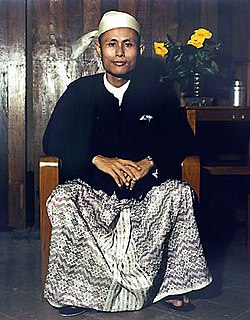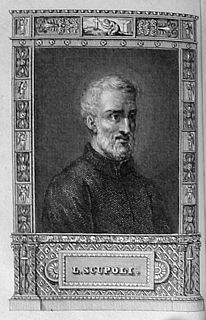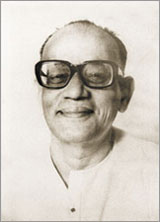A Quote by Jose Ortega y Gasset
The hero's will is not that of his ancestors nor of his society, but his own. This will to be oneself is heroism.
Related Quotes
I am well aware that there is such a great craving in man for heroism and the heroic, and that hero worship forms not a small motif in his complex. I am also aware that, unless man believes in his own heroism and the heroism of others, he cannot achieve much or great things. We must, however, take proper care that we do not make a fetish of this cult of hero-worship, for then we will turn ourselves into votaries of false gods and prophets.
Total surrender to the will of God actually is sacrificing oneself as a burnt offering to God. The proof of this state is dying to oneself, - to one's own opinions, wishes and feelings or tastes, in order to live by Divine intellect, in conformity with the Divine will and in partaking of God. In the forefront of this endeavor is our Lord and Savior. He surrendered the whole of Himself to God the Father, and us in Himself, 'For we are members of His body, of His flesh, and of His bones' (Eph. 5:30). So let us hasten in His footsteps?
Whoever is truly humbled — will not be easily angry, nor harsh or critical of others. He will be compassionate and tender to the infirmities of his fellow-sinners, knowing that if there is a difference — it is grace alone which has made it! He knows that he has the seeds of every evil in his own heart. And under all trials and afflictions — he will look to the hand of the Lord, and lay his mouth in the dust, acknowledging that he suffers much less than his iniquities have deserved.
Since the social victim has been oppressed by society, he comes to feel that his individual life will be improved more by changes in society than by his own initiative. Without realizing it, he makes society rather than himself the agent of change. The power he finds in his victimization may lead him to collective action against society, but it also encourages passivity within the sphere of his personal life.
Men will imitate and admire his unmoved firmness, his inflexible conscience for the right; and yet his gentleness, as tender as a woman's, his moderation of spirit, which not all the heat of party could inflame, nor all the jars and disturbances of this country shake out of its place: I swear you to an emulation of his justice, his moderation, and his mercy.
Life consists of sadness too. And sadness is also beautiful; it has its own depth, its own delicacy, its own deliciousness, its own taste. A man is poorer if he has not known sadness; he is impoverished, very much impoverished. His laughter will be shallow, his laughter will not have depth, because depth comes only through sadness. A man who knows sadness, if he laughs, his laughter will have depth. His laughter will have something of his sadness too, his laughter will be more colorful.
The essence of justice is mercy. Making a child suffer for wrong-doing is merciful to the child. There is no mercy in letting the child have its own will, plunging headlong to destruction with the bits in its mouth. There is no mercy to society nor to the criminal if the wrong is not repressed and the right vindicated. We injure the culprit who comes up to take his proper doom at the bar of justice, if we do not make him feel that he has done a wrong thing. We may deliver his body from the prison, but not at the expense of justice nor to his own injury.
Socialism is the doctrine that man has no right to exist for his own sake, that his life and his work do not belong to him, but belong to society, that the only justification of his existence is his service to society, and that society may dispose of him in any way it pleases for the sake of whatever it deems to be its own tribal, collective good.








































